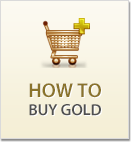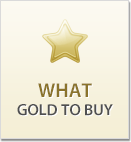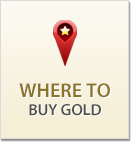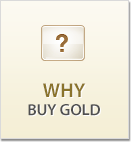If you are looking to purchase gold coins or other precious metals, you may be considering paying for your purchase with PayPal. PayPal is convenient for buyers – it requires no paper check to be sent in the mail, and no contacting the bank to initiate a wire transfer.
Instead, the transaction is handled electronically, with the transfer handled by PayPal as a third party so that neither the buyer nor the seller see each other’s financial information. However, PayPal is actually an uncommon payment method in the precious metal industry. Aside from eBay sellers, few precious metal dealers accept it as payment. Two sellers which you can buy precious metals from using PayPal are JM Bullion and Silver.com who both offer physical gold and silver bullion at the lowest prices possible.
Downsides of PayPal
Why do so few precious metal sellers accept PayPal? First, there are the fees associated with this method of payment. If you’ve only used PayPal as a buyer, you may not realize that accepting this method of payment costs sellers a percentage of the sale. This fee can be nearly 3% of the purchase price, taking a significant bite out of profits. Many sellers prefer using other methods, such as bank wire or paper checks, that incur lower fees.
In addition, PayPal is not as safe – especially for high-dollar transactions – as you might assume. PayPal has been used by both buyers and sellers to run precious-metal scams. Here’s one example of how the scam works. A buyer can use PayPal to pay a precious metal dealer. After they receive their gold in the mail, they keep the gold and initiate a PayPal dispute.
PayPal is notorious for nearly always siding with the buyer, which means PayPal will debit the seller’s PayPal account, return the money to the buyer’s account, and the scammer gets to keep the precious metal. The risk of such chargebacks has led many precious metal dealers to refuse to accept PayPal.
It is also possible to get scammed if you’re the buyer. Some scammers take advantage of buyers’ belief that paying with PayPal is “safe.” After all, you’ve probably used it to pay for dozens of eBay transactions that went smoothly. You assume that because the gold seller accepts PayPal, it must be safe to buy from them.
Once you send the money, the seller disappears, and by the time you discover that you’ve been scammed, the money is long gone. If the money has already been withdrawn from the seller’s PayPal account, PayPal is not able to return your money.
Finally, there is another reason why many precious metal dealers do not accept PayPal payments. According to PayPal’s user agreement, sellers must ask for, and receive, approval before accepting payments for precious metals and gemstones. If a seller violates this policy, they risk having their account suspended or terminated, and the money could end up stuck in limbo as the issue is sorted out.
Given all of these issues, it’s no surprise that few reputable precious metal dealers will accept PayPal. Thankfully, there are a number of safe and efficient ways to pay for your purchases of gold or silver, such as by credit card, wire transfer, or paper check. Please note that eBay purchases often allow you to pay via PayPal, so that may be an avenue to explore.





